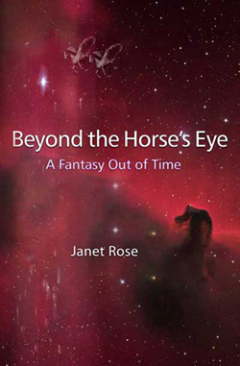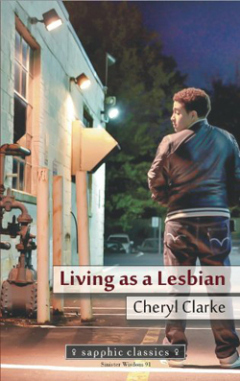Julie R. Enszer's Blog, page 36
April 2, 2014
Writing Poems by Hand
My friend Sarah Wylder is doing a great project for National Poetry Month: she is writing poems by hand and posting them to Facebook. She tagged me with this poem by Anne Carson, Book of Isaiah, and I asked her if I could post it here. What I love is the power of copying poems by hand. It seems to me that that is how we learn about how poems work, not only through our eyes and through our mind, but physically, through our hands, through the act of writing.
When is the last time you copied another poet’s poem by hand?
Filed under: poetry Tagged: Anne Carson, hands, poetry, Sarah Wylder


March 31, 2014
‘Edgy Chronicles’: An Evening of Readings by Cheryl Clarke and Janet Rose
Saturday, April 5, 7-9pm
Bluestockings Bookstore
172 Allen Street, NYC
(bet. Rivington and Stanton–F train to 2nd Ave; or W. Houston Bus to Allen St and walk south toward Stanton)
Two edgy lesbian authors read from their different but complementary genres for personal, artistic and political expression. Clarke, acclaimed activist, scholar, poet and essayist, is a prolific analyst and chronicler of struggle. Rose, activist, educator and psychologist, approaches issues through literary science fiction. Clarke will read from her published works, LIVING AS A LESBIAN, THE DAYS OF GOOD LOOKS: PROSE AND POETRY, 1980-2005. Rose will read from her published novel, BEYOND THE HORSE’S EYE —A FANTASY OUT OF TIME.
http://www.WordSpacePublications.com
Filed under: Event, lesbian, Uncategorized


March 26, 2014
What Has My Attention Today
It has been a good four days of reading and writing. Perhaps not reading and writing some of the things that I should be doing, but reading and writing things that bring joy and sustenance. I will reveal more as various projects reach fruition. In the meantime, some of the things that have had my attention online.
I’m fascinated by the economics of publishing and book selling so this piece in The New York Times about McNally’s bookstore was interesting. I note that I do not have as much to say about it as many of my friends do on Facebook.
Here is “A Reading List for a New Generation of Gay Men.” It begs for a lesbian counterpart, doesn’t it?
I loved Andrea Lawlor’s piece on being a parent and why her child Hart does not have two mommies. Smart and savvy writing.
Finally, I really loved Janet Mason’s piece on the new Nicole Brossard collection, White Piano (Coach House Books, 2013), and Joan Timberlake’s lesbian mystery, No Corpse Is an Island, (Blue Feather Books, 2013). An unexpected juxtaposition that works and invites great thinking about lesbian literature.
Now, I’m sipping a glass of champagne and getting ready for my conference double header. Split This Rock tomorrow and then A Revolutionary Moment: Women’s Liberation in the late 1960s and 1970s. I’ll be on twitter during both conferences and that will probably be the best way to reach me. More next week!
Filed under: lesbian, lesbian studies, scholarship


March 21, 2014
Rainbow Book Fair in New York City

Facebook: facebook.com/pages/The-Rainbow-Book-Fair/316524641722482
I will not be at the Rainbow Book Fair next Saturday in New York, but Sinister Wisdom will have a table there, so if you are in the New York environs, do stop by, say hi to our fabulous volunteers, and subscribe to Sinister Wisdom or pick up a back issue of the journal.
Book fairs are increasingly an important venue for small publishers, an issue I address in my latest piece at the Huffington Post, Readers Wanted: Building LGBT Literary Cultures.
I would love to hear your reactions to this piece here or at Huffington Post.
Filed under: lesbian, progressive activism Tagged: Book Fair, LGBT Books, New York


March 20, 2014
Link Round Up and Random Thoughts Before Scandal
Today, I accidentally published a post that storified my saga with United Airlines earlier this month. I was trying to make a feed work with Storify and WordPress and it did not really work and so a post was published that was a bunch of coded garbage. This happened in the middle of a busy day of work. I cleaned up the blog post but felt guilty all day and publishing garbage into the world. So this post is a bit of repentance. And a random assortment of links and thoughts.
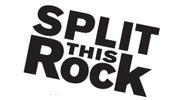
I am speaking a bit publicly in the next week. First, I will be at Split This Rock in Washington, DC on Thursday. Do join me and more importantly come to the whole conference. It is a fantastic poetic touchstone that only happens every two years. You don’t want to miss it. (You also don’t want to miss my comments on my panel. I worked on them tonight and they are smart and provocative. I may post them here, but I may not have time given other commitments, so if you are local, come to the panel!)
Second, I will be speaking about lesbian separatism at the Women’s Liberation Conference at Boston University on Friday and Saturday. I have been writing and thinking a lot about lesbian separatism since I finished my dissertation and this paper will present some of that thinking which I am continuing to work on and shape into a journal article.
So those are the things on my calendar over the next week. Now, a few links of things on my mind.
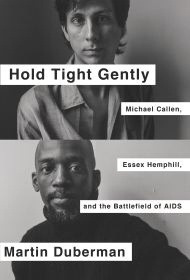
Today, I was thrilled to see the excerpt from Martin Duberman’s new book Hold Tight Gently at the Advocate.com. This new dual biography examines the lives of Essex Hemphill and Michael Callen and is a gorgeous tribute to both men and an incisive rethinking of The history of AIDS. Look at the excerpt at the Advocate.com and pick up a copy of the book. You will not regret it.
I do not think that I have posted my most recent piece from the Huffington Post here, so click this link to read about Sinister Wisdom and the legacy of Adrienne Rich. While you are at Huffington Post, go ahead and follow me there. I have another column coming out at Huffington Post in the next few days.
While I am enjoying blogging at Huffington Post, I am thinking a lot about Yasmin Nair’s critique of this work as scab work. Read her very smart analysis here.
Finally, I am thinking a lot about happiness and it’s absence. I know that I want to have happiness and joy in my life. I do not have enough of either right now and so am thinking about why that is and what can be done to change that. I have no clear answers right now, but hope to find some. One fact I realized in the past few weeks is that while I was in my PhD program, I do not recall ever being told I am a good writer. I can recall a litany of moments where my thinking and my writing were found lacking. The only moment I can remember a professor telling me that I was a good writer–that I had “a gift”–was the person who convinced me to do a MFA. I cherish that moment, not because I think that I have a gift rather because it was a moment of extraordinary care for me as a person. I do not observe or experience many of those in the daily rigors of academia.
So I am on a pursuit of happiness and joy and understanding why it is absent. When was the last time you experienced a moment of extraordinary care? When was the last time you cared for someone in an extraordinary way?
Filed under: personal writing, scholarship, The New Press Tagged: care, feminism, happiness, joy, Martin Duberman, Split This Rock


My Luggage Saga with United
March 17, 2014
Sinister Wisdom Awarded Leadership Award from Publishing Triangle – March 2014 Newsletter

Sinister Wisdom to Receive Leadership Award
From the Publishing Triangle
The announcement from the Publishing Triangle that Sinister Wisdom is the winner of the 2014 Leadership Award thrilled all of us at Sinister Wisdom. The prize will be presented on April 24, 2014 in New York City. Here is what the Publishing Triangle had to say about the award:
Created in 2002, this award recognizes contributions to lesbian and gay literature by those who are not primarily writers-editors, agents, librarians, and institutions.
 Sinister Wisdom is a multicultural lesbian literary and art journal that publishes four issues each year. Publishing since 1976, Sinister Wisdom works to create a multicultural, multi-class lesbian space. Sinister Wisdom seeks to open, consider and advance the exploration of lesbian community issues. It recognizes the power of language to reflect the diverse experiences in the lesbian community and to enhance the ability of lesbians to develop critical judgment as they evaluate their community and their world. Julie R. Enszer, PhD, is the current editor and publisher of Sinister Wisdom.
Sinister Wisdom is a multicultural lesbian literary and art journal that publishes four issues each year. Publishing since 1976, Sinister Wisdom works to create a multicultural, multi-class lesbian space. Sinister Wisdom seeks to open, consider and advance the exploration of lesbian community issues. It recognizes the power of language to reflect the diverse experiences in the lesbian community and to enhance the ability of lesbians to develop critical judgment as they evaluate their community and their world. Julie R. Enszer, PhD, is the current editor and publisher of Sinister Wisdom.
In 2013, Sinister Wisdom moved into book publishing as well, in partnership with A Midsummer Night’s Press. Its Sapphic Classics are reprint editions of iconic works of lesbian poetry. The first such title, Minnie Bruce Pratt’s Crime Against Nature, was published in April 2013; the second Sapphic Classic, Cheryl Clarke’s Living as a Lesbian, came out in January 2014.
For its decades of publishing to a queer audience, Sinister Wisdom, the oldest surviving lesbian literary journal, is being honored with the Publishing Triangle’s Leadership Award.
Want more information? Visit the Publishing Triangle.
Spring Subscription Drive
Celebrate the Leadership Award by Subscribing to Sinister Wisdom
The greatest way to pay tribute to Sinister Wisdom is by subscribing to the journal. We have a special spring subscription drive. We hope to add 38 new subscribers by May 1st–one for every year that Sinister Wisdom has published. Will you join us as a subscriber today? Full information about subscriptions is available here: http://www.sinisterwisdom.org/subscribe. We will be counting until we reach 38 and announce that milestone at www.SinisterWisdom.org.
Back Issues Available
Copies of Sinister Wisdom 87 and 81 are hot this month
After Sinister Wisdom publisher and editor, Julie R. Enszer, wrote about Sinister Wisdom 87: A Tribute to Adrienne Rich at the Huffington Post, copies have been flying off of our shelves. You can still get a copy, however, if you have missed this issue, by clicking here. You can read Enszer’s column here.
Also hot is Sinister Wisdom 81: Lesbian Poetry–When? And Now! in which lesbian poets pair their work with poems by other lesbian poets they admire. A few copies of this issue are still available here.
We sell all back issues in stock here at the special price of three issues for only $15 plus postage. Pick up a few for yourself–and to share with friends.
Share Sinister Wisdom with a Friend!
We can All be Wise and Sinister Together
Share Sinister Wisdom! Forward this email message and encourage your friends to become subscribers to Sinister Wisdom and receive the quarterly goodness of our print journal. Gift subscriptions are available for Sinister Wisdom as well. If you receive this email forwarded from a friend, go to http://www.SinisterWisdom.org to sign up for our newsletter. Share Sinister Wisdom so others know about the oldest, continuously publishing multicultural lesbian literary & art journal.
Thanks for reading, sharing, and supporting Sinister Wisdom!
In sisterhood,
Julie
Julie R. Enszer, PhD
Editor & Publisher
Sinister Wisdom
Filed under: Uncategorized


March 13, 2014
Is a University Degree still a Tool for Class Mobility?
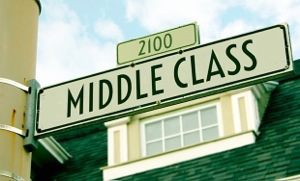
I have been doing mid-term check-in meetings with my students in Theories of Feminisms. Today, I met with a lovely, smart young woman from a working class family in Baltimore. She works nearly full-time at a fast food restaurant in addition to going to school full-time. She is smart and working hard, though does not find all of her classes compelling. She worried that she was spending a lot of money to go to the University when she could go to a community college and get a degree that would lead more directly to a job. She worried about a future with student loans (though a pretty average amount for students at state universities). She worried that she did not fit in at our university, that she was not like the other students. Yet, she was not vulnerable; she was tough, determined. I wondered, what can I tell her that I know to be true?
First, we talked about the differences between community colleges and universities. I told her, community colleges offer more technical degrees, degrees that respond to employment needs in the local counties. I told her university degrees invite you to imagine the role of being a manager in the world of work, a path to white collar jobs. I told her none of this is guaranteed, but you are getting and education steer and ship and not be a cog in steerage. I told her, this is not to diminish the important work that your parents do, that many people do in the world, but this education might create a different kind of life for you.
I asked, what do you want to get out of your time here at the University? I asked her, what do you need to learn? She started to tell me about knowledge in her classes, and I said, no, what do you need to learn about the world? What do you envision for your life? What can you get from our University that will make your life meaningful? Important? That will help you be the person you want to be in the world? She said, yes, I have to figure out the answers to these questions.
I did not promise her, but I came close to promising her, that a degree from a University is a tool for class mobility. I suggested that there is something of value in learning to walk and talk among middle class people, something beyond alienation.
I have been thinking about this student all day. Did I tell her the right thing? Is a university education still a tool for class mobility? In this era of an increasing gap between the rich and the poor, will a university education help to change that inequality? Do I still believe in this transformative proposition? I have had doubts and worries all day because this young woman with her brains and her vulnerability and her certainty, her power, her clear knowledge of who she was and how power is located in the world, I do not want to lie to her. I do not want to disappoint her. I want to have the integrity she implicitly demanded.
I hope I told her the right things. I hope my words made a difference.
What would you have said?
Filed under: progressive activism, scholarship, teaching Tagged: integrity, teaching, Theories of Feminisms


March 6, 2014
On not being a finalist

“Bad Romance” a short piece by Lizzy the Lezzy.
For the past dozen years or so, I have loved the day that the finalists for the Lambda Literary Awards are announced. The unveiling of this list of good reads delights me. Each year, I have taken the list as a guide for a huge book purchase. Recently, that has been online, though I remember the years of going to gay and lesbian bookstores between March and June and stocking up on finalists. For me, the Lammies, as they are affectionately called, are an important curated list of LGBT literature. One that I treasure.
In part, I admit, I treasure these lists because I want to be on it. Yes, on my bucket list, on my list of lifetime goals is: win a Lammy. Yes, being a finalist is wonderful, as I learned when the anthology I edited, Milk & Honey: A Celebration of Jewish Lesbian Poetry, was one. But, I want to win. Someday. And honestly, I want a book of my poetry to be a finalist, not only an edited collection.
Today, I learned that my newest book of poetry, Sisterhood, is not a finalist. I have a lot of rationalizations about this fact. I understand the nature of awards; the deliberations of award committees. I know that this work is more art than science. I know judges are influenced by an array of factors. I think of books I have read while sick or cranky and hated only to return to them later and fall in love. I know judges are human. I know that not being a finalist does not make my book any less good, less important.
Yet. Queer literature is the reason I write. From the first book of lesbian poetry I ever read (a collection of poems by May Sarton) to every volume of poetry that I love, LGBT literature is my reason for being. This is my tribe, and I want my work to be recognized by my tribe. Today, it was not. That is painful in ways that are incalculable and hard to convey.
In fact, I pause even in writing this and thinking about posting it. I know that I should convey a particular persona online: thoughtful, cheerful, positive, productive. I know that no one wants to read about disappointments, self-pity, and most of all despair. And yet. The disappointment and pain of not being a finalist are palpable to me this evening.
I have signed off Facebook for the night because I cannot quite cheer the many friends and colleagues who are finalists. And I want to cheer them. Last year, many wonderful and amazing books were published by phenomenal queer authors, and many of these books are finalists for the Lambda Literary Awards. (And you should go and buy these books because that is one concrete way to support our LGBT arts and letters.) I hope to emerge in a few days the optimist, cheerful, generous person who delights in the achievements and recognition of others. Tonight, I am not quite able to be that person.
And it is not socially acceptable to go and post on people’s walls, who like me are not finalists. (Many people in my tribe are not.) I would like to go and post on their walls: hey, your amazing book wasn’t a finalist for a Lammy either. So sorry! I am thinking about you tonight, thinking we are sharing a sense of miserableness, a sense of despair in the world. No one wants to read that on Facebook. So those of us rejected today, those of us who are not finalists, sit quietly.
There is little to be said about not being a finalist, even among close friends. It is hard to strike the balance of anger, despair, resignation, and stoicism. I cannot yet conjure generosity, though I know I will in the future. Hopefully, the near future, because I want to be the kind and generous person who celebrates other people’s joys and successes without revealing my own pain, but this seems like not quite a fair proposition.
So I turn to this blog, this public space to hold the paradox of joy and excitement about the Lammy finalists with the sense of loss and rejection. Loss and rejection are vibrant parts of the writing life. Parts we too often elide and leave unspoken. They need to be said, though, occasionally. There are winners and losers. Our work is rejected more often than it is accepted. This is an agreement we implicitly accept when we sign on to this life. Sometimes, though, the implicit acceptance at signing is not enough and we must resist, we must speak out about the pain, the hurt.
The truth is I write because I am compelled by something inside which I cannot quite explain, but I also write to reach out to the world, to find an audience. Today, an imagined audience that is dear to my heart told me NO. You, your book, your words, your poems are not good enough for us. You are not worthy.
That message hurts tonight. The hurt will lessen over the next days and weeks, but I wanted to give words to the experience. Because that is what I do.
Filed under: Uncategorized


March 5, 2014
Orthodoxy

Just as I am attracted to the nuns and their calling, I am intrigued by women who chose to be modern Orthodox Jews. What prompts people to maintain a strict religious practice that is by most appearances out of sync with contemporary life? What prompts people to adopt a religious practice that is more rigorous that the religious practices with whichever they were born and raised? What prompts people to adopt an orthodox practice when one is not born into the community? What draws people to orthodoxy? What draws women to a community where the roles of women and men are narrowly circumscribed?
Of course, the connection to nuns is by now obvious. I admire people people living lives grounded in principles, doctrine, and sets of political beliefs. Many people who choose a religious calling, in all religions, choose a life grounded in principles and doctrine. Often, too, their attraction to the life is difficult to explain and difficult for outsiders to understand. Yet, the explanations intrigue me.
The truth is, I admire spirituality and religious convictions that are chosen more than ones that are inherited. To continue a practice with which you were raised absent of intensive questioning, challenging debates, and personL crises seems, perhaps banal. So those who choose a particular type of orthodoxy, even when it is neither my own nor expressive of my fundamental political beliefs, fascinate me and earn my admiration.
In addition, I realize that part of my attraction to orthodoxy is is the convictions and orthodox ideas of lesbians, lesbian-feminists, and separatists. Part of my scholarly work seeks to create more space for respect and appreciation for different orthodoxies of feminism. Are feminist orthodoxies so different from the orthodoxies of Jews? Are the orthodoxies of the left different from the orthodoxies of the right? Often asking that question is an invitation for people to reject orthodoxy, but that is not my intent. I want to both recognize the convergences of orthodoxies on the left and the right AND I want to hold on to the value of these orthodoxies. I do not want to simply dismiss orthodoxies as extremism without important messages and meanings for all, those who subscribe to orthodoxies and those who do not.
When I think about the orthodoxies that I admire, I think about women who were lesbian separatists in the 1970s and 1980s; women who thought intently about how to give all of their time and energies and money to projects that benefitted women and lesbians. These practices were extraordinarily generative. From the impulse of separatism some of the most enduring lesbian and feminist institutions began; separatism as an ideology, as an orthodoxy, also helped to sustain vital community work. What makes a lesbian separatist any different from a frum woman, from a modern Orthodox woman? Is there a way we can imagine the observant, orthodox woman living a revolution similar to the lesbian separatist? Is her work reimagining gender and power as the work of lesbian separatism? Are there congruencies between these two women even as we can see and understand their differences? Both are living daily a set of political and ethical convictions. Both are working to create a world that is different from the current world. While their commitments may be different, can we see the similar impulse of their convictions? Can we recognize that each provide something important to the world? Can we understand that each offer a vision of change and a daily practice of living that change?
So this is my brief praise song for orthodoxy. My first reaches to think further about what orthodoxies offer us and how they link disparate communities.
This blog post is dedicated to a student from one of my Theories of Feminisms classes; she reads this blog, and I hope will write about her own thoughts on orthodoxy, grappling further with our shared attraction for orthodoxies.
Filed under: personal writing, spirituality Tagged: orthodox







